How Hard Drives Still Compete With SSDs

I think there's an issue with my storage device, but I'm not sure
Start a free evaluationLong story short: according to the recent International Data Corporation's research called "The Data Age 2025", the global amount of stored digital information will reach 163 zettabytes by 2025. And even more mind-boggling than that is when you compare it to 2016, when that figure was only 16 zettabytes.Of course, those zettabytes have nothing to do with those music albums you store on your computer, or the folder full of pictures of your dog. Big Data is to blame: large corporations, once they became interested in data as a potentially powerful marketing tool, began recording literally every action performed by a person on the global web — in an attempt to predict the behavior of potential customers, and therefore better understand their target audience.With that, the situation is aggravated by such budding fields as Machine Learning and the Internet of Things: billions of devices every second generate a huge amount of information, making neural networks require more and more data for analysis and processing. Eventually, that results in a tenfold increase in the amount of stored information along with growing demand for more capacious drives to be offered. But then a question arises: what if we don’t have the technologies potent enough to store it?
Hard Drive’s Weak Spots
Since the first hard disk drive was created, the recording density of drives had been doubled every year until 2010 — when its growth began to slow down due to the fact that Perpendicular Magnetic Recording (PMR) begun approaching its theoretical limit of 1TB per square inch.Throwing around the big words, the limitation of PMR is associated with the influence of superparamagnetic effect, when a decrease in the physical dimensions of magnetic domains (one magnetic domain encodes 1 bit of information) in a ferromagnetic substance with a certain coercive force can lead to an arbitrary change in the magnetic moment of such domains. In other words, with sufficiently small magnetic domains, such a disk can arbitrarily lose information.At the same time, coupling a fast CPU with slow storage is a sure way to halve your computer's abilities: whereas its processor is capable of handling billions of cycles per second, it is forced to spend a lot of time waiting for the drive to pass the data. Why does the process take so long? Because platters have to spin up while the read-and-write arm has to find its way physically to the data sectors you're looking for.With all that in mind, it's no wonder HDDs seem to be dashingly losing points — while SSDs keep gaining momentum regarding sweepingly glowing performance speed rates and monstrous storage capacities to be offered. So, if SSDs are clearly superior to hard disk drives, why haven't the latter become a thing of the past?

MAMR: The Game-Changing Technology
At one point, the engineers noticed a curious peculiarity: applying a special field of a certain frequency to a ferromagnetic substance lead to much less energy required to change the magnetic moment of the domain. And that's how the game-changing technology of Microwave-Assisted Magnetic Recording — abbreviated as MAMR — was born.The magnetic moment in ferromagnets is provided by the intrinsic spins of elementary particles in the atoms of a substance. When the spins of the particles inside the magnetic domain are "directed" to one side, a magnetic moment of the domain arises, which can be read using the reading head. The magnetic moment can be in one of two directed states, due to this, information is recorded.Simply put, HDDs record information onto teensy metal hairs that can be flipped magnetically by the read-and-write head (that way representing a 1 or 0). In order to increase the density of storage, manufacturers tried to diminish the size of those hairs, however, as they get smaller, they require more energy to be flipped. So once the head starts outputting more energy, the hairs become harder to control and more errors occur. MAMR, however, solves the problem by integrating a Spin-Torque Oscillator into the read-and-write head, thanks to which the hairs get more energy — and thus the head can influence them more easily.So, that's how the invention changed the industry's tendencies: in Q4 2019, as soon as the device had passed all their internal tests, Western Digital introduced 16TB hard drive, mentioning at least 20TB will also be launched in 2020, and announcing about plans to increase capacities by 4TB every year.
Price Per Gigabyte
As seen from the Backblaze research that was based on 75.000 hard drives purchased between 2009 and 2017, the price chart of HDDs has moved downward dramatically... with the capacity options, however, still competitive: 10TB hard drive will cost you under $200 (an average of 0.2 to 0.3 dollars per gigabyte) — while a 4TB SSD can set you back over $400. The fact is that there are instances where hard drives are certainly winning — like price politics to the capacity ratio: say, HDDs are in demand by those who seek bulk storages to deploy in their businesses — when workload doesn’t require extreme performance speed, hard disk drives would be the most optimal choice.
Related services
These are the most commonly requested data recovery services. At our headquarters' cleanroom lab, our certified engineers conduct a thorough review of any type of physical storage device, determining if there is logical or physical damage and carefully restoring all of the lost files.ces.

External Drive Data Recovery
We recover data from both external SSD and HDD drives. Rely on certified experts to restore your important files from damaged or corrupted external drives.
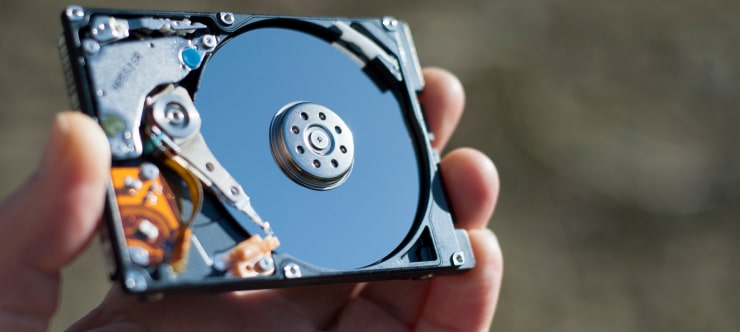
Hard Drive Data Recovery
Recover data from all brands of HDD, PC hard drives, and hybrid disks. Our specialists ensure fast and secure recovery for any data loss scenario.
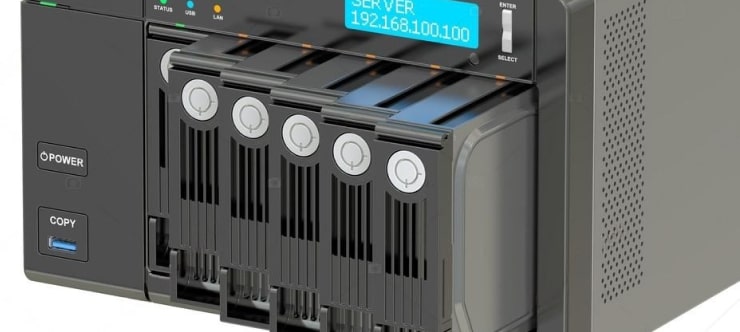
NAS Data Recovery
Recover data from NAS devices, including RAID configurations. Our team handles all types of NAS systems and ensures data recovery with minimal downtime.
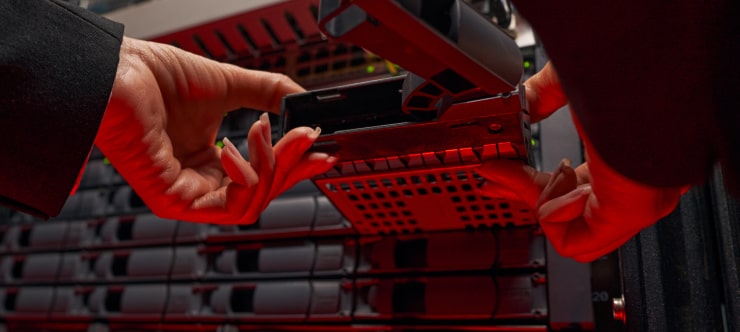
RAID Data Recovery
Our RAID data recovery services cover RAID 0, 1, 5, 10, and other configurations. We offer expert solutions for failed, degraded, or corrupted RAID arrays.
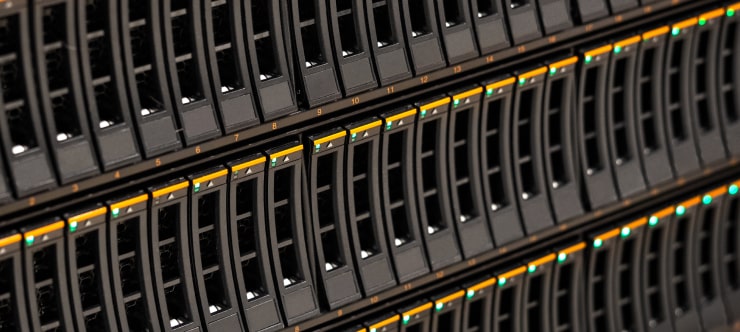
SAN Data Recovery
Our team specializes in handling SAN devices from leading manufacturers like Dell EMC, HP, and IBM, ensuring efficient recovery with minimal disruption to your operations.
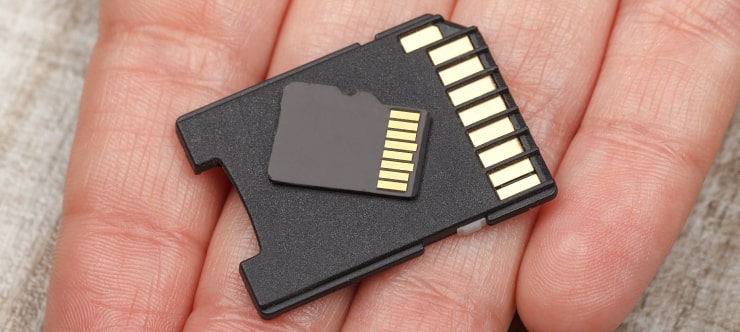
SD Card Data Recovery
Our recovery experts specialize in restoring data from SD and memory cards. We guarantee quick recovery with a no-data, no-charge policy.
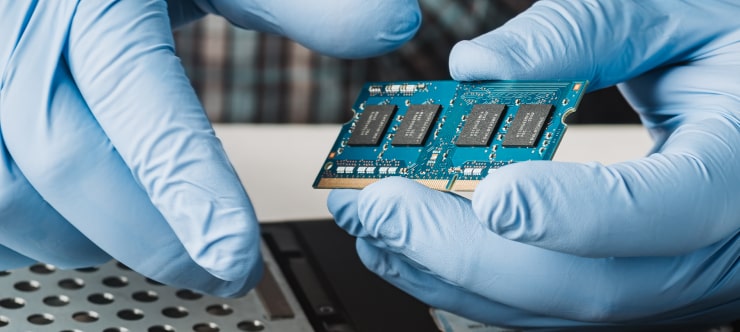
SSD Data Recovery
Our data recovery experts handle all SSD data loss scenarios with advanced tools, ensuring maximum recovery with high-security protocols.

USB Flash Drive Data Recovery
Recover lost data from USB flash drives, regardless of the damage or brand. We offer free in-lab evaluations to assess data recovery needs.
If you’re unsure about which data recovery service to choose, let our team assist you in selecting the appropriate solutions. We understand the anxiety that comes with a sudden drive failure, and we are more prompt in our actions compared to other recovery service providers.



